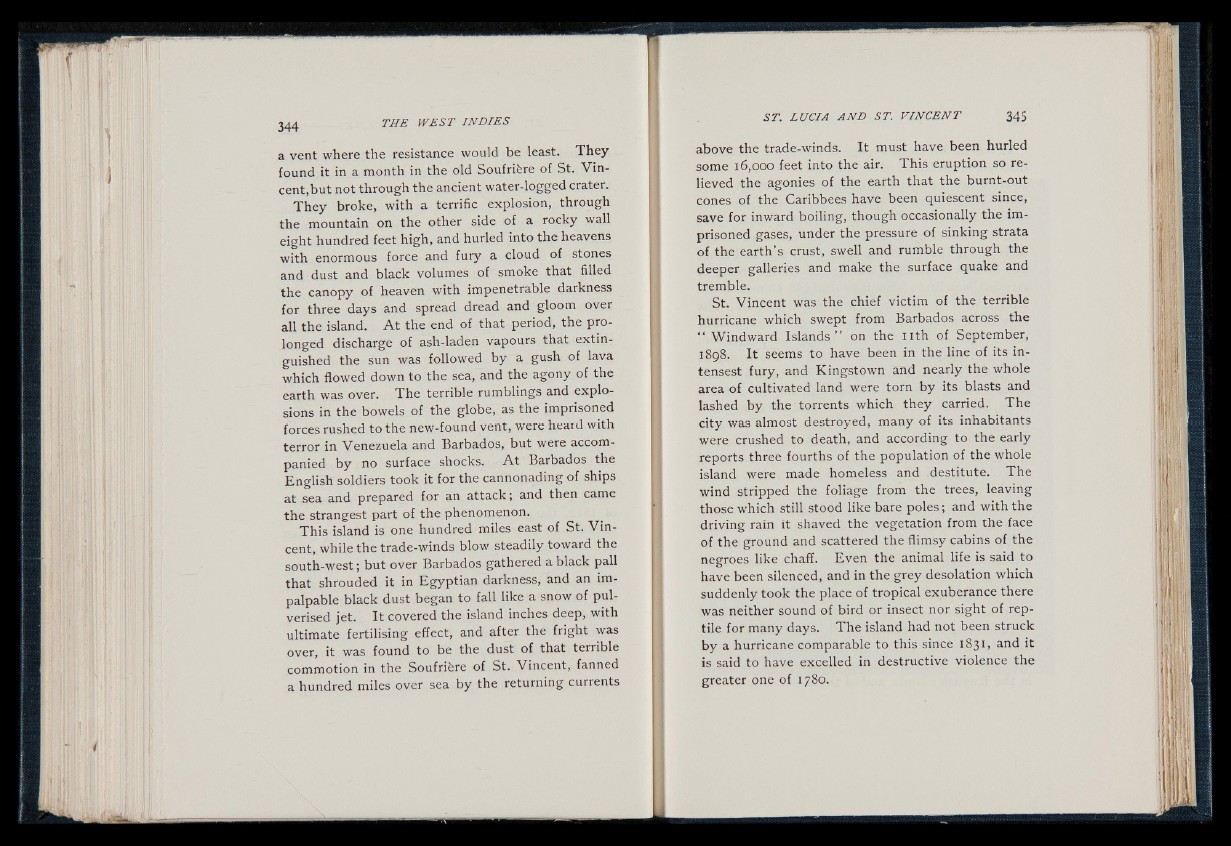
a vent where the resistance would be least. T h e y
found it in a month in the old Soufrière of St. V in cent,
but not through the ancient water-logged crater.
T h e y broke, with a terrific explosion, through
the mountain on the other side of a rocky wall
eight hundred feet high, and hurled into the heavens
with enormous force and fury a cloud of stones
and dust and black volumes of smoke that filled
the canopy of heaven with impenetrable darkness
for three days and spread dread and gloom over
all the island. A t the end of that period, the prolonged
discharge of ash-laden vapours that extinguished
the sun was followed by a gush of lava
which flowed down to the sea, and the agony of the
earth was over. The terrible rumblings and explosions
in the bowels of the globe, as the imprisoned
forces rushed to the new-found vent, were heard with
terror in Venezuela and Barbados, but were accompanied
by no surface shocks. A t Barbados the
English soldiers took it for the cannonading of ships
at sea and prepared for an attack ; and then came
the strangest part of the phenomenon.
This island is one hundred miles east of St. V in cent,
while the trade-winds blow steadily toward the
south-west ; but over Barbados gathered a black pall
that shrouded it in Egyptian darkness, and an impalpable
black dust began to fall like a snow of pulverised
jet. It covered the island inches deep, with
ultimate fertilising effect, and after the fright was
over, it was found to be the dust of that terrible
commotion in the Soufrière of St. Vincent, fanned
a hundred miles over sea by the returning currents
above the trade-winds. I t must have been hurled
some 16,000 feet into the air. This eruption so relieved
the agonies of the earth that the burnt-out
cones of the Caribbees have been quiescent since,
save for inward boiling, though occasionally the imprisoned
gases, under the pressure of sinking strata
of the earth’s crust, swell and rumble through the
deeper galleries and make the surface quake and
tremble.
St. Vincent was the chief victim of the terrible
hurricane which swept from Barbados across the
“ Windward Is lan d s ” on the n th of September,
1898. It seems to have been in the line of its in-
tensest fury, and Kingstown and nearly the whole
area of cultivated land were torn by its blasts and
lashed by the torrents which they carried. The
city was almost destroyed, many of its inhabitants
were crushed to death, and according to the early
reports three fourths of the population of the whole
island were made homeless and destitute. The
wind stripped the foliage from the trees, leaving
those which still stood like bare poles; and with the
driving rain it shaved the vegetation from the face
of the ground and scattered the flimsy cabins of the
negroes like chaff. Even the animal life is said to
have been silenced, and in the grey desolation which
suddenly took the place of tropical exuberance there
was neither sound of bird or insect nor sight of reptile
for many days. The island had not been struck
by a hurricane comparable to this since 1831, and it
is said to have excelled in destructive violence the
greater one of 1780.